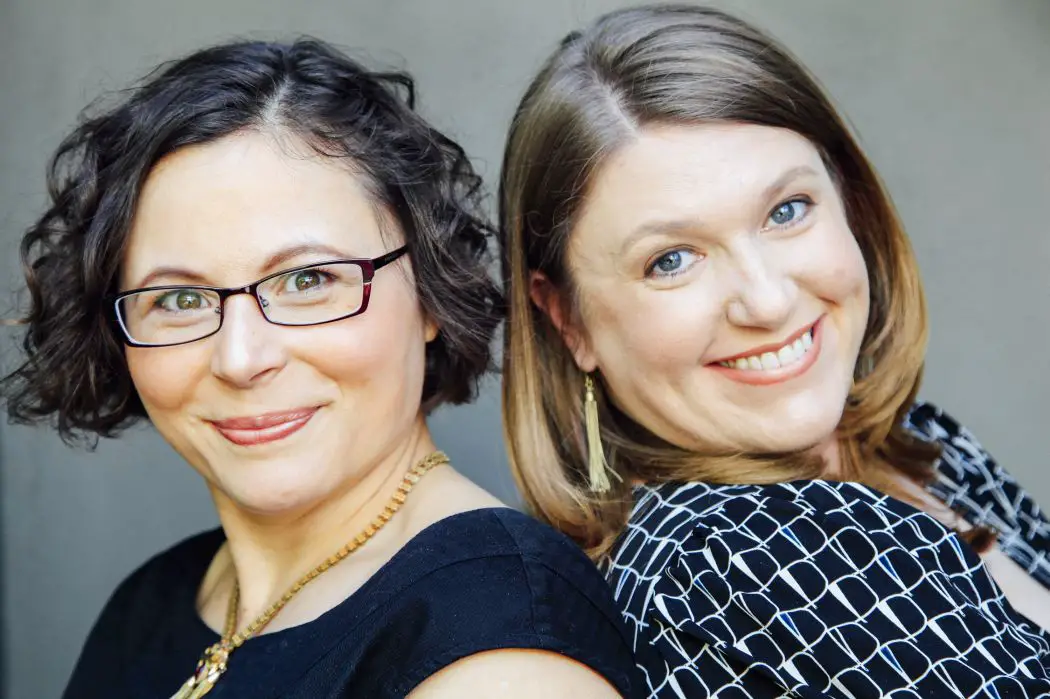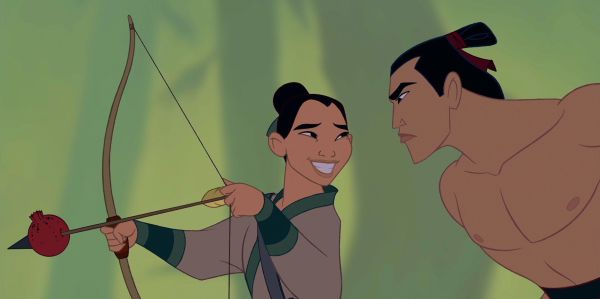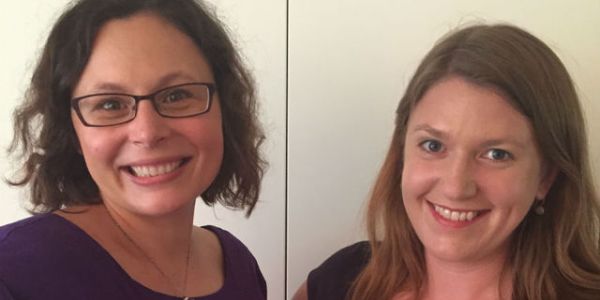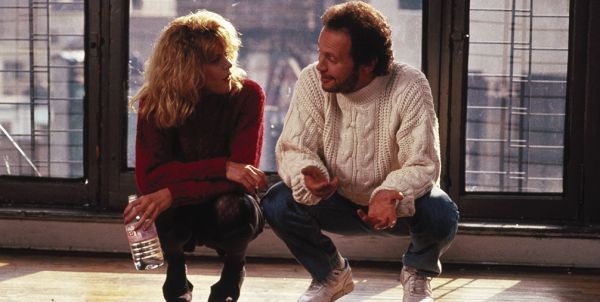Interview With MULAN (2018) Writers Elizabeth Martin & Lauren Hynek

Manon de Reeper is the founder and CEO of Film…
When I was in Los Angeles, I had the pleasure of meeting Elizabeth Martin and Lauren Hynek. If you’ve heard of the upcoming live-action Mulan adaptation that Disney’s doing, with Niki Caro directing, it’s likely that you heard their names.
The writing duo penned a spec script based on the ancient intellectual property, the original Chinese story of Hua Mulan. They then went ahead and put it on the market, and shortly thereafter, Disney bought it, and is now producing it. It’s scheduled for a 2018 release, 20 years after their animated Mulan.
The ladies were so generous to answer some of my questions by email about how that process of selling their script went and what it’s like to be a writing team. They also explained what their work on the Committee of Women Writers of the Writers Guild of America West, and they have some great tips for writers. You can find their answers below!
Manon de Reeper for Film Inquiry: How did you decide to work on Mulan?
EM & LH: We were looking for a story that did a few things. We wanted to tell a story that we don’t see enough of… a story about a strong woman of color who gets to be the hero. We were also looking for something we thought it was possible to sell, since we wrote the script on spec and were hoping to get paid for that work. And, of course, we wanted a story that got us excited to write and to see on the big screen one day. After a lot of brainstorming and research and advice from smart people, Mulan became the obvious choice.
Was it always your plan to sell it to Disney?
EM & LH: We wanted to sell the script to a buyer who would have the resources to make the movie without cutting corners AND would care enough about the property to put those resources into the production. While Disney wasn’t the only choice, it’s a fabulous place for the project to have landed. And now our script is in the excellent hands of Rick Jaffa and Amanda Silver.

How did you get Disney to look at your screenplay and buy it? Did that process take long?
EM & LH: We were working on the script with producer Jake Weiner (who was at BenderSpink at that time). Jake sent the script to Disney on a Tuesday. Disney bought it that Thursday. The process doesn’t usually go that quickly, so we were very lucky.
Can you tell us a little about your work within the WGAW as part of the Committee for Women Writers? What does the Committee do within the WGAW? Why is it important that there’s a Committee for Women Writers?
EM & LH: Elizabeth is co-chair of the WGAW Committee of Women Writers and Lauren is the committee vice-chair. Here’s our mission statement:
This Committee represents the interests of female WGA writers who are seeking WGA-covered work. We sponsor events designed to increase our knowledge of the craft and the marketplace, discuss the role of women as storytellers and foster networking and collaboration between women in all Guilds, as well as increase opportunities for education, employment opportunities and creative expression. Our goal is to empower all writers and improve the profile and perception of Women writers in the industry.
The most recent WGA hiring report (with data from 2014) has some rather depressing statistics: Women make up 29% of writing staffs. Women television writers earned approximately 93 cents for every dollar earned by white males in 2014. In features, the relative earnings figure dropped to 68 cents. Women wrote just 9.2% of top films in 2014.
Change isn’t happening quickly on its own. We do what we can battle biases (conscious and unconscious) to move the needle and get us closer to equitable hiring. We put on panels and seminars at the WGAW as well as teaming with like-minded organizations such as the Geena Davis Institute, the Alliance of Women Directors, and Google, for more programming.
Additionally, our meetings and events provide a place for women writers to come together and support one another. The entertainment industry, like just about every other industry, relies strongly on personal relationships. By getting together, we are forging relationships that can lead to jobs and resource sharing.
What’s it like to work as a writing team?
EM & LH: We love working as a team. Elizabeth, in particular, thinks out loud and it’s far more effective to spitball with a great collaborator instead of the wall. We debate a lot and that means we’ve really thought out why we’re writing what we’re writing. It’s super helpful when it comes to pitching and getting notes because we’ve thought things through from a lot of different angles so we’re always ready to defend our choices (politely!) as well as discuss the ramifications of changes.

Plus, when we go to meetings, the driver has a built in navigator (we carpool). Never underestimate that! But as much as we like being a team, we always caution people to be thoughtful when they enter in writing partnerships. There’s a reason many partners are married or siblings, it’s an intense relationship and you’ve got to be in it for the long haul.
How did you meet?
EM & LH: We met when we were in high school. We were both working at Shakespeare & Co in Lenox, MA for the summer. We continued working in theater through college. We ended up at colleges on opposite coasts and didn’t see that much of each other until one summer we worked together at what we affectionately refer to as a “Shakespeare commune” in New Hampshire.
We still love theater and work on it as often as our schedules will allow. We’re lucky enough to have had three of our plays produced by the Know Theatre of Cincinnati, a great small theater that focuses on new work.
How did you become writers?
EM & LH: The short answer: We just decided to do it. The long answer: while at our Shakespeare commune, doing almost every job but writing, we were up early one morning sewing costumes and said, “man, if I’m gonna work this hard and not get paid, I wanna be a screenwriter.”
So we decided to go away to Elizabeth’s family’s log cabin in the Canadian woods and write a screenplay. Because how hard could it be? The answer is: hard. But we kept at it. Reading books, taking classes, working odd jobs, and writing. We wrote and rewrote a lot of terrible scripts. And then one day they weren’t terrible. And then we started winning contests. And finally we started getting paid to write.
How do you keep writing? Do you have any routines that help you with that?
EM & LH: Butt in chair. Really. Writing is hard. Some days, it’s really hard. But we keep turning up. We mostly write during business hours so that we’re also available to answer emails and phone calls. And then we let ourselves off the hook most nights.
It’s important to work hard, but it’s equally important to take some down time. We get a lot of great ideas pulling weeds in the yard or taking a shower. Stepping away from the computer and living life is important for creativity. But we never wait for “the muse” to turn up and we always make our deadlines. When it’s time to write, we write something. If it doesn’t work, we’ll change it later. Never be afraid of “the vomit draft!” That’s what editing is for!
How do you get to know your characters?
EM & LH: We always come from a place of theme first. What is this story about? And once we decide that, it’s easier to think about what kind of person can help us express that theme. Take When Harry Met Sally as an example: that movie is exploring the question, can men and women really be friends? So, it’s helpful to have two characters with opposing beliefs who can discuss the issue.

Once you know that these characters need to hold these opinions, you can ask yourself why they believe that? What kind of person would believe that? What things have happened to Harry and Sally in the past that gave them this belief? Who are around them who can support or challenge this belief?
In answering those questions, you’re automatically working up a character bio including hopes and dreams and flaws that will help your movie feel like a richly fleshed out world.
What goes into writing a good main character, in your opinion?
EM & LH: A great character has a distinct worldview, which takes us back to the discussion of theme and why it should be the starting point. Once you’ve got that, you’ve got to give your characters room to grow — they need a good arc. Vince Gilligan once said that the way he pitched Breaking Bad was “Mr. Chips becomes Scarface.”
That has really stuck with us. It’s so simple and immensely complex at the same time. It really makes you want to know how that could happen. When we’re pitching projects we try to think of similar transformative arcs that are easy for people to understand and exciting to imagine. We got at least one job with the phrase, “Jane Eyre becomes Braveheart.”
Do you have any for aspiring writers trying to make it in Hollywood? And for female writers, in particular?
EM & LH: Know that it’s going to take a long, long time. Screenwriting is a difficult skill that takes quite a while to master. And then, even once you have the skill set to do the job, there are a lot of other people who are have that skill set so it can take an equally long time to get the job. Something to remember is there are more jobs available in TV right now than features, so that could influence what you decide to become an expert in.
The percentage of women writers working is still pretty low, but we’re optimistic about the future. There’s increased awareness and a lot of individuals, organizations and companies working together to try and create a more equitable hiring situation.
What are your favourite films or series at the moment? In what ways do you feel their writing stands out?
EM & LH: We watch a lot of stuff and always recommend to other writers that they watch and analyze as much as they can. Here are just a few of our current favorites:
The Handmaid’s Tale: Chilling and powerful in its timeliness and so visually stunning. Also, the structure is amazing, especially the way the storylines play with time. Every choice is so carefully made and executed.

Jane the Virgin: Comedy! Romance! Tragedy! Strong women! This checks all our boxes. Plus, it’s another show that is very carefully thought out and structured. Hints of the events from the current season are laid in all the way back at the beginning.
Younger: This is delicious, emotional writing that just makes us want to binge the season.
Hidden Figures: A movie we’ve already seen multiple times. It’s about strong, ambitious women who never competed with each other, but supported each other through tough times. And, from a writing perspective, it made a super compelling drama out of people doing math!
What kind of stories excite you, and what kind of stories would you like to see more of in Hollywood?
EM & LH: As you can probably tell from our answers to these questions, we love stories about awesome ladies being awesome. But we also love stories that give a glimpse into a world we’ve never or rarely seen before. So, you can see why we love Hidden Figures!
The awesome ladies are so awesome AND, although we’ve seen NASA before, we’d never seen the black women “computers” who helped make history (unexplored world alert!). Fortunately, many of the stories we love are doing very well at the box office, so we hope to see lots more of them in the years to come.
What else are you working on at the moment?
EM & LH: None of our current projects have been announced, so we can’t reveal the titles, but we’re primarily working on two true stories about amazing women — both a TV drama pilot and a feature film. We’re very excited about both projects and look forward to sharing more when we can!
I’d like to thank Ms. Martin and Ms. Hynek for their time, it was a pleasure meeting with them and I’m looking forward to seeing Mulan and their other future work!
You can follow the writer duo on Twitter!
Does content like this matter to you?
Become a Member and support film journalism. Unlock access to all of Film Inquiry`s great articles. Join a community of like-minded readers who are passionate about cinema - get access to our private members Network, give back to independent filmmakers, and more.
Manon de Reeper is the founder and CEO of Film Inquiry, and a screenwriter/producer. Her directorial debut, a horror short film, is forthcoming in 2021.













